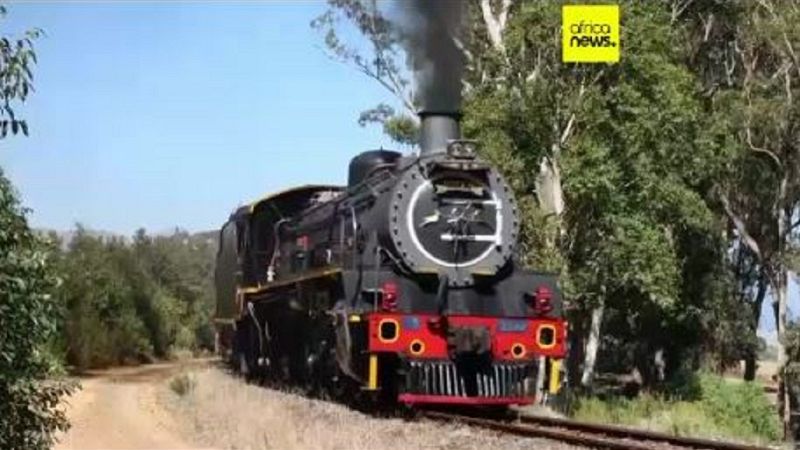South Africa's Ceres rail's vintage steam train journey through scenic landscapes to Elgin

Every weekend, Ceres Rail Company operates its steam train on a scenic 160 km round-trip to the enchanting Elgin Railway Market, which takes about three hours.
On a crisp Saturday morning, travelers board vintage railway coaches in Cape Town, embarking on a 161-kilometer round trip aboard a steam-powered train.
The Ceres Steam Train to Elgin is one of five steam heritage journeys offered in South Africa. For some, it’s a fresh adventure, while for others, it evokes fond memories.
Hans Luijk, who is celebrating his 60th birthday with his wife, reflects on how riding a steam train transports him back to the 1980s, a time when the South African military was engaged in conflict in Angola. “The last time I rode a train was about 38 years ago when I was called up for military service. It was a journey from Wingfield, near Cape Town, to Grahamstown, covering roughly 900 kilometers. Back then, my emotions were all mixed up. This time, however, it feels leisurely and adventurous,” he shares.
As the train chugs along at a relaxed pace of 45 kilometers per hour, passengers have ample opportunity to converse, celebrate special occasions, or simply enjoy the scenery.
A standout moment is the ascent of Sir Lowry’s Pass, after which the train enters the picturesque Overberg region.
Steam trains began operating in South Africa in the 1860s, playing a crucial role in the nation’s industrial growth.
At the height of steam travel in 1959, there were 3,300 steam locomotives in service across the country.
Peter Rogers, who has been conducting steam train tours in South Africa since the 1980s, notes that two primary factors contributed to the prolonged use of steam trains here compared to other nations. “Steam was the dominant form of traction, largely because of our plentiful coal resources and the sanctions period that limited access to diesel fuel. As a result, steam continued to operate until the 1980s when railways began phasing it out. The last steam service ran on the Kimberley-De Aar line around 1992,” he explains.
When steam operations ceased in 1992, there were still 700 steam locomotives in service. Today, approximately 20 steam locomotives remain active, one of which powers the Ceres Train.
Seventy-year-old Johan Fourie dedicated his career to the national railways from 1971 until his retirement in 2009, witnessing the transition from steam to diesel engines. Since 2013, he has been a steam train driver in the heritage sector.
“Steam is in my veins; it’s my first love,” he shares. “I often tell my wife that this is my first wife. Nothing compares to a steam engine. It has a life of its own. You might have heard about our struggles climbing the mountain, but we made it, slowly yet surely. That’s what being alive feels like! Unlike a diesel engine, which is lifeless, a steam engine communicates with you.”
The Ceres Train travels along its final stretch to the Elgin Railway Market.
Roger Orpen, the owner of the market, describes the reactions of children who have never seen a steam train in person. “When the train blows its whistle and releases steam, the kids come rushing out. They often get startled by the loudness of the engine—only to realize it’s not a diesel engine, but a steam engine! I believe this beauty was built around 1946,” he notes.
This steam train underwent a complete restoration in 2015.
Orpen’s railway market embraces the essence of steam train travel, drawing inspiration from steampunk design.
Maintaining steam train travel in the 21st century presents numerous challenges, particularly the need to create spare parts from scratch.
However, Ceres Train Director Rick Botha emphasizes the lasting passion for steam travel.
“There are now more steam locomotives operating in the country than there were a decade ago. There’s definitely been a resurgence in steam, and interest is growing. Wherever steam runs, it attracts crowds. People love it; they wave and cheer. There’s a unique joy surrounding steam that you won’t find anywhere else.”
On most weekends, both locals from Cape Town and international tourists have the opportunity to relive the nostalgia aboard the Ceres Train to Elgin.
Today

